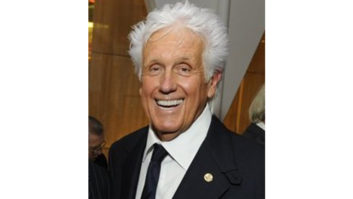The author is membership program director of the National Federation of Community Broadcasters. NFCB commentaries are featured regularly at www.radioworld.com.
The 2020 presidential election cycle is certain to be a fractious one. Even if the candidates and issues of the day were not heated enough, embers of foreign interference allegations during the 2016 race still linger. Recent incidents involving international entities in the noncommercial media space should be a reminder that it is necessary to handle particular issues delicately.
This week, PBS SoCal announced an investigation into a film it helped to fund, after PBS said the documentary did not meet the organization’s editorial standards. “Voices from the Frontline: China’s War on Poverty” was produced partly with the support of the CGTN TV network, a subsidiary of the China Media Group, which is supervised by the Communist Party of China’s publicity division.
Current points out funding relationships and conflicts of interest were raised as potential issues. The probe of the film is ongoing.
[Read: Community Broadcaster: Four Zoom Tips for Community Radio]
Other recent issues highlight programming and content issues that any station might want to carefully observe.
Earlier this year, media reported on Radio Sputnik, widely regarded as a proxy for the Russian government, is now broadcasting on three Kansas City-area radio stations during drive time hours. “In the United States, talk radio on Sputnik covers the political spectrum from right to left, but the constant backbeat is that the United States is damaged goods,” one story notes. “They find much to dislike in the U.S., from the reporting on the coronavirus epidemic to the impeachment of Pres. Donald Trump, and they play on internal divisions as well.”
The Kansas City cluster told the press the stations carry Radio Sputnik because management thought the programming was good, and because a group working with Rossiya Segodnya, the Russian state media organization that operates Sputnik, is paying them to do so.

Last year, it was revealed in lobbying disclosures that Chinese telecommunications hardware manufacturer Huawei had retained program services from Las Vegas Public Radio, a low-power FM best known for suing CPB for not funding the station. Although the White House had previously shut Huawei out of the U.S. market amid trade skirmishes, the firm appears intent on improving its stature in America. The agreement would provide content to tell a different, presumably more favorable, story to audiences.
Over time, I have heard of similar issues at stations. Many times, the need at a particularly bootstrapped station is filling a proverbial hole. Someone offering reliable content on a daily and weekly basis is music to the ears of many. Sprinkle money into the discussion and it is not surprising that stations might be interested.
The problems are manifest. The perception that a station is airing propaganda can damage its reputation for years to come. Both conservatives and liberals today are worried about foreign interference in U.S. elections, with 72% of Americans believing there is a high likelihood of such occurring. These viewpoints could hurt a community radio organization’s fundraising going forward.
Whether you think these relationships are valuable for noncommercial media, because they tell a story our communities rarely hear, or find them to be problematic for the appearance of bias, such partnerships must go through rigorous review. Community radio can at times miss such assessments. However, stations would be smart to exercise caution, should such opportunities arrive.












